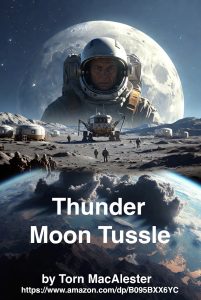
Contact Us Name * First Last * Last Email * Subject * Message * Submit If you are human, leave this field blank. Δ #SciFi, #LunarAdventure, #FabulaeLunae, #MoonMissions, #LunarScience Coming Soon The Mask of the Joyful Moon

Contact Us Name * First Last * Last Email * Subject * Message * Submit If you are human, leave this field blank. Δ #SciFi, #LunarAdventure, #FabulaeLunae, #MoonMissions, #LunarScience Coming Soon The Mask of the Joyful Moon
# Golf and Outgassing: The Story That Started It All When I sat down to write the very first tale set in what would become the Fabulae Lunae universe, I knew I wanted to begin with something personal to the history of lunar exploration—something every space enthusiast has smiled about at least once. Alan Shepard’s […]
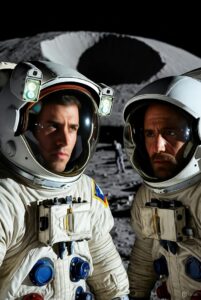
This week spotlights two gripping tales of Fabulae Lunae: The Lunadyne Incident and Other Stories: the short story Descent into Darkness and its companion vignette Commander. These science fiction narratives by Torn MacAlester center on astronaut Nils Carmike, the interesting protagonist of the novel Thunder Moon Tussle, as he navigates the perilous and awe-inspiring lunar frontier. […]

Welcome, readers, to a new tale born from the ashes of a world transformed. In “The Mountain,” we step into a desolate, grey landscape where the air is thick with ash and the past clings faintly to the present. This story begins with Jake Conway, a man returning to his mountain cabin after […]

Welcome, sci-fi enthusiasts and aspiring world-builders! As a hard science fiction writer, I’ve always believed that the heart of an interesting story lies in blending imagination with scientific precision. When crafting the universes of my stories, I turn to real-world science to ground my speculation, especially for one of the genre’s biggest questions: What about […]

Get ready for an gripping narrative with “Drive to Houston,” a story set against the backdrop of a world turned upside down. It all begins with an alarm signaling Jacob Conner, a lead astronaut, to head from Dallas to Houston to support NASA’s space station operations. What follows is a harrowing journey through the ash-laden […]
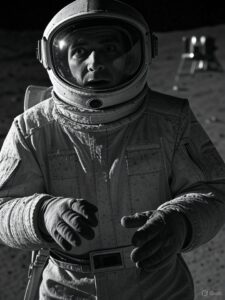
Greetings, space adventurers and sci-fi enthusiasts! I’m excited to launch you into the depths of Descent into Darkness, a gripping tale from my anthology The Lunadyne Incident & Other Stories, now available on Amazon at https://www.amazon.com/dp/B0D5F7L3QS. Set in the Fabulae Lunae universe after a Yellowstone super-volcano eruption, this story plunges readers into the icy heart […]
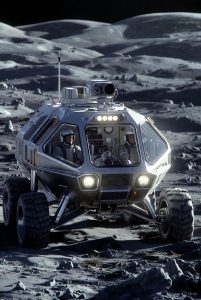
Hello, lunar tech enthusiasts and sci-fi readers! Today, we’re diving into the six-wheeled crawler that plays a pivotal role in Golf and Outgassing, a standout tale from The Lunadyne Incident & Other Stories, available now on Amazon at https://www.amazon.com/dp/B0D5F7L3QS. This rugged vehicle not only drives the action in the story but also echoes real-world advancements […]
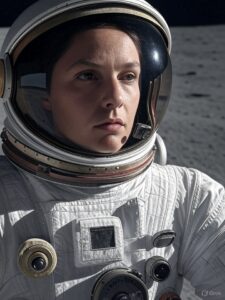
Greetings, lunar explorers and sci-fi fans! Today, I’m thrilled to introduce you to Annie MacInturner, a standout character from The Lunadyne Incident & Other Stories, now available on Amazon at https://www.amazon.com/dp/B0D5F7L3QS. Featured prominently in Golf and Outgassing, Annie is a Marine lieutenant colonel turned lunar astronaut whose grit, intellect, and moral compass make her a […]
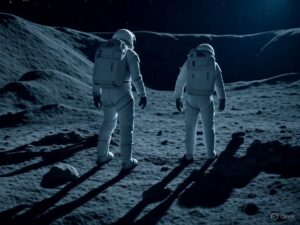
Welcome back, lunar explorers and sci-fi aficionados! Today, I’m excited to spotlight Golf and Outgassing, one of the five captivating tales in my anthology The Lunadyne Incident & Other Stories, now available on Amazon at https://www.amazon.com/dp/B0D5F7L3QS. This story whisks you away to the rugged highlands of Fra Mauro, where seasoned astronaut Annie MacInturner and rookie […]